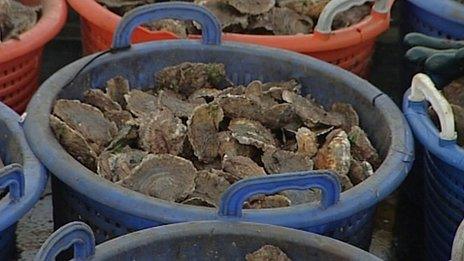Oysters released onto Solent seabed in bid to boost stocks
- Published
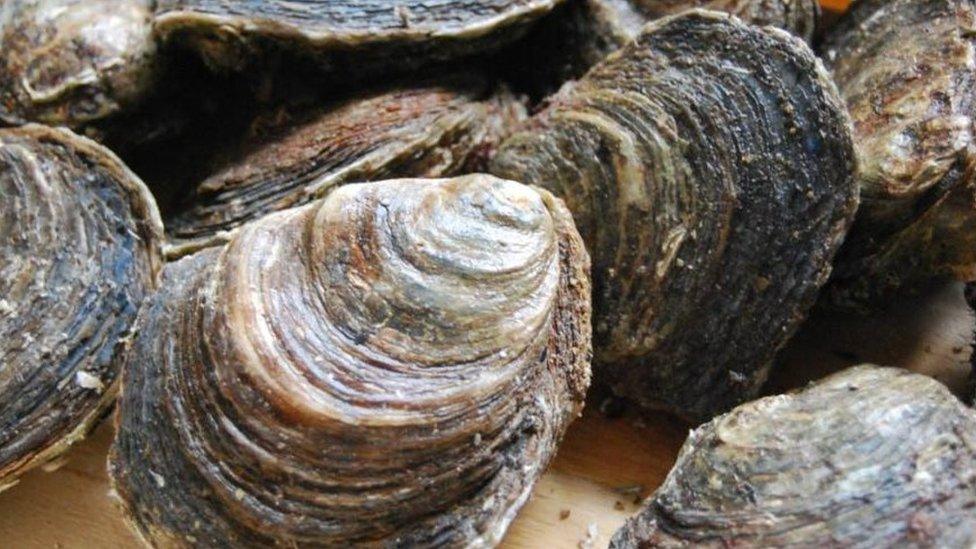
Oyster fishing was banned in the Solent in 2013
Up to 20,000 oysters have been released onto the seabed of the Solent in a bid to revive stocks.
Fishing of the mollusc was banned in the area in 2013 when annual harvests plummeted from 200 to 20 tonnes, in just five years.
Last year, a baby oyster was discovered after Blue Marine Foundation transferred 20,000 of the shellfish to cages at six sites.
The new six-month trial comes ahead of a planned release of one million.
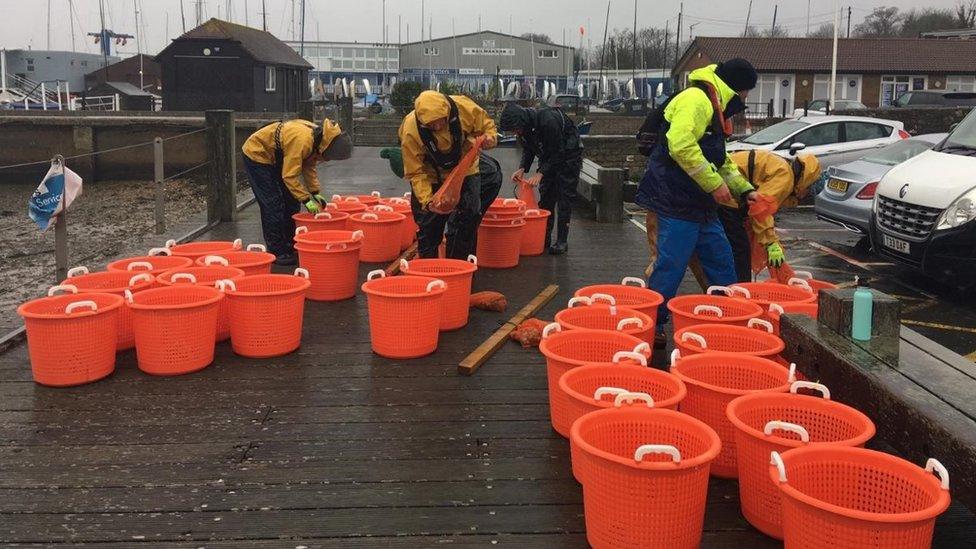
About 20,000 oysters have been released onto the seabed at the River Hamble Estuary
Jacob Kean-Hammerson, of Blue Marine Foundation, described it as a "major highlight" and said the trial would "inform techniques" ahead of the large-scale deployment of oysters next year.
"We have re-laid them at three different densities - of one, five and 10 per sq m - to examine which will be the most successful," he said.
"We hope the juveniles, which are one to two years old, will mature and grow into breeding oysters."
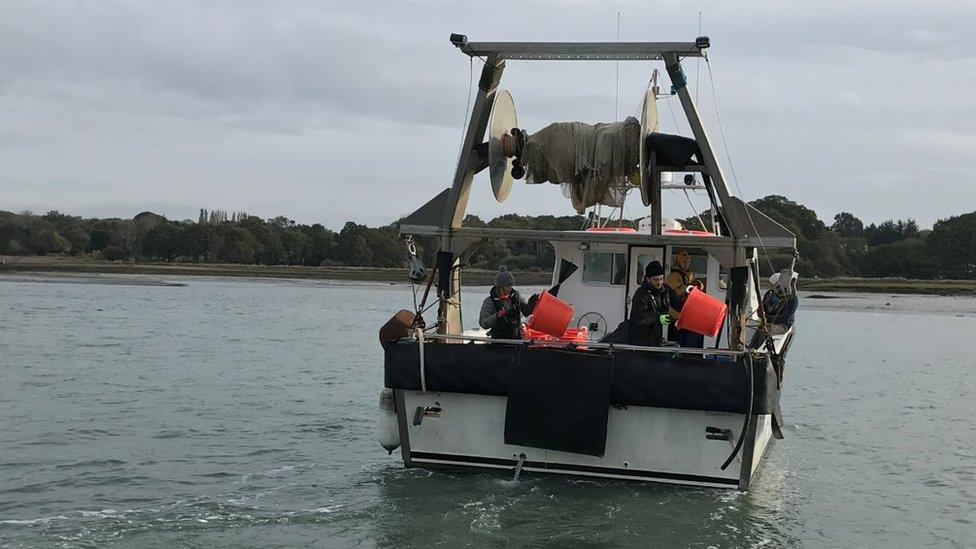
The six-month trial comes ahead of a planned release of one million next year
The first checks of the trial are expected to take place in March.
The caged oysters started to reproduce in July 2017 and a 5mm baby (spat) was found off Portsmouth last March.
A final report on the project is expected in 2021.
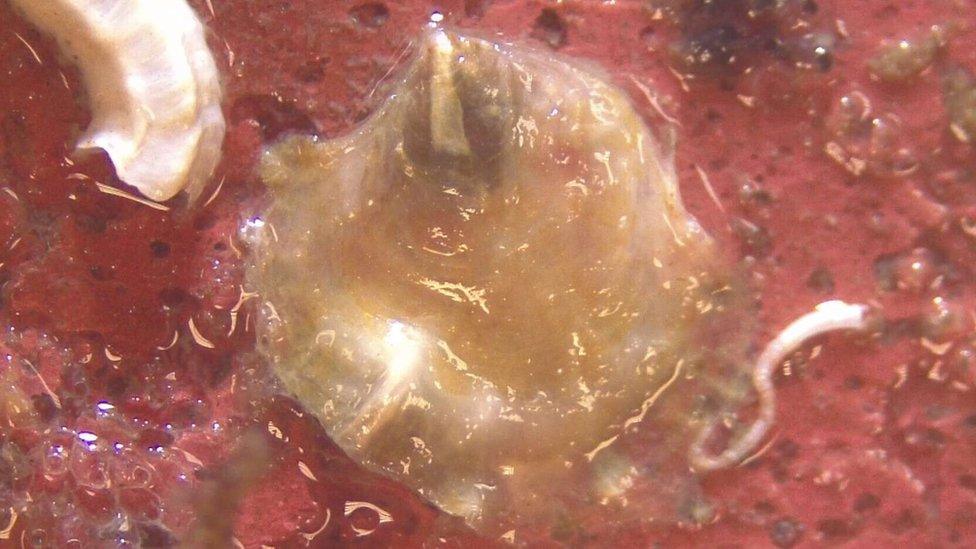
A 5mm (0.2 inch) spat was found off Portsmouth last spring
- Published16 March 2018

- Published14 November 2017
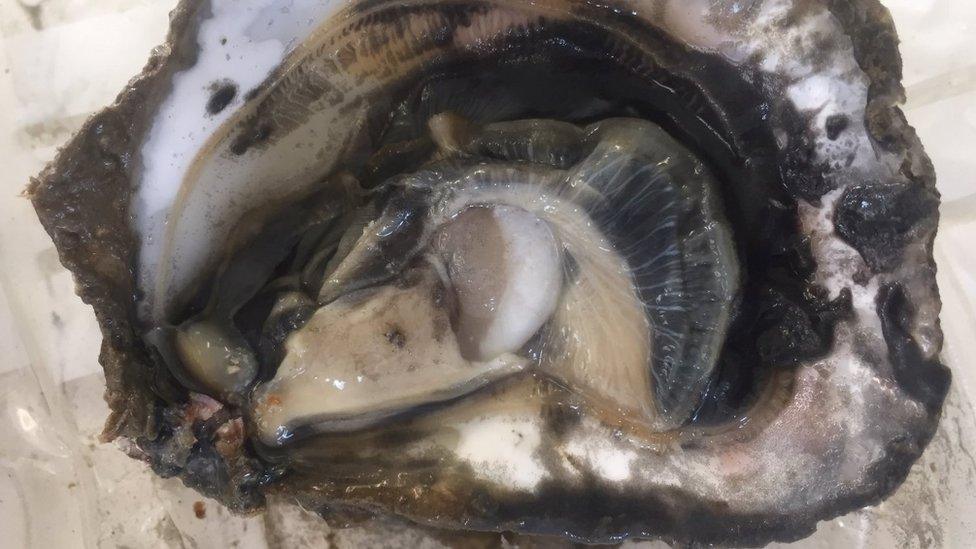
- Published18 July 2017

- Published30 May 2016
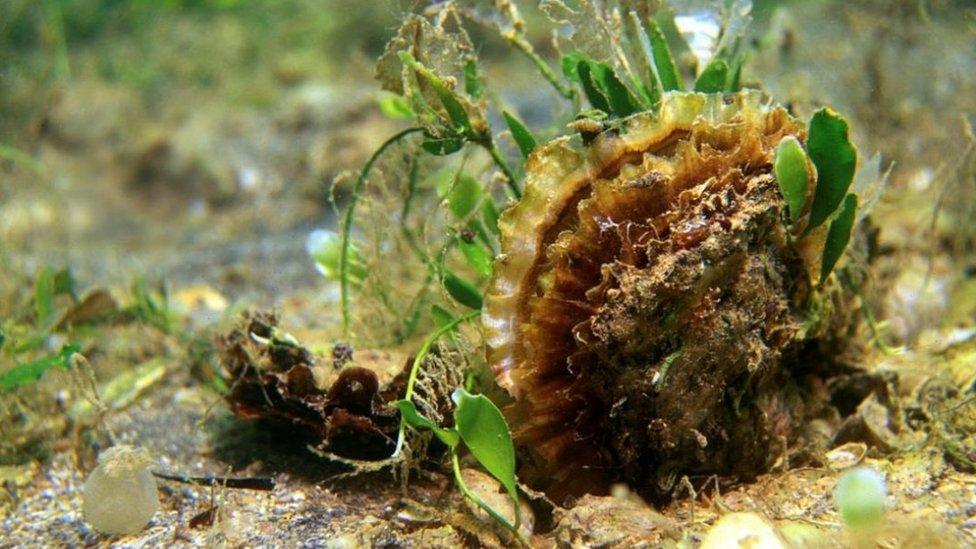
- Published26 December 2015
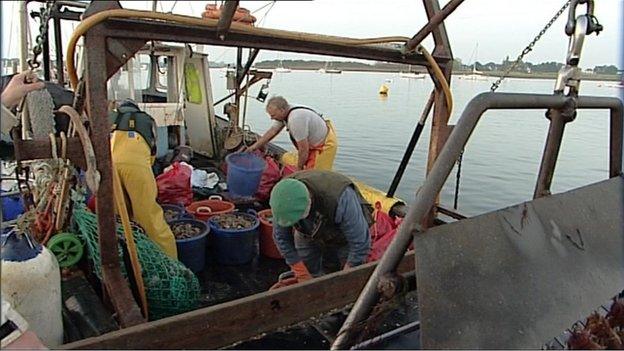
- Published11 November 2015

- Published11 October 2013
